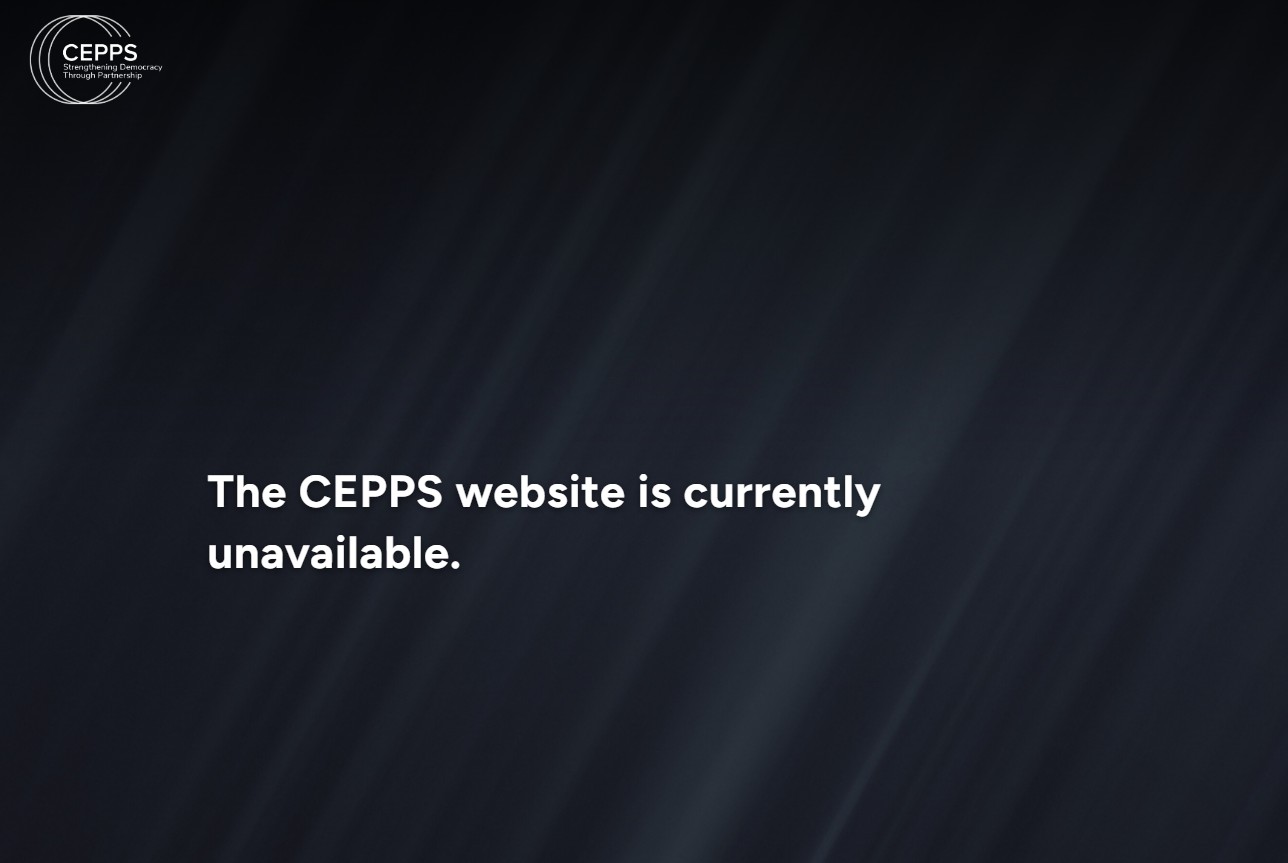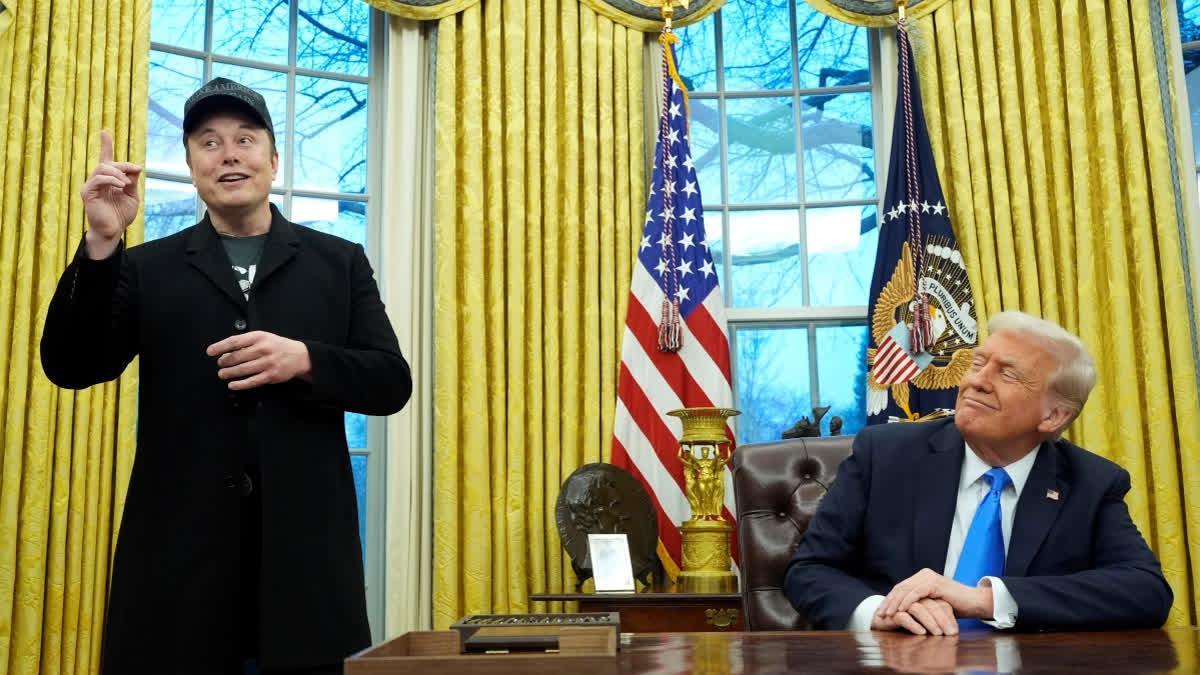New Delhi: The cat is out of the bag. And how! In a dramatic policy shift, the second Donald Trump administration’s newly-formed Department of Government Efficiency (DOGE) has axed $21 million in funding meant to bolster voter turnout in India’s elections.
The move raises fresh questions about how—and why—the United States spends taxpayer dollars to influence democratic participation abroad. In a post on its X handle, the DOGE stated that it was cancelling the allocation of $21 million for “voter turnout in India”.
US taxpayer dollars were going to be spent on the following items, all which have been cancelled:
- $10M for " mozambique voluntary medical male circumcision"
- $9.7m for uc berkeley to develop "a cohort of cambodian youth with enterprise driven skills"
- $2.3m for "strengthening…<="" p>— department of government efficiency (@doge) February 15, 2025
The DOGE, officially the US DOGE Service Temporary Organisation, is an initiative of the second Trump administration led by tech billionaire Elon Musk. Despite its name, DOGE is not a Cabinet-level department of the US government, but a temporary contracted government organisation under the United States DOGE Service, formerly known as the United States Digital Service.
Its purpose is to carry out Trump’s agenda of federal spending cuts and deregulation, and, according to the order that established it, to “modernise federal technology and software to maximise governmental efficiency and productivity”.
In its post, the DOGE announced the following cuts:
- $10 million for “Mozambique voluntary medical male circumcision”
- $9.7 million for UC Berkeley to develop “a cohort of Cambodian youth with enterprise driven skills”
- $2.3 million for “strengthening independent voices in Cambodia”
- $32 million to the Prague Civil Society Centre
- $40 million for “gender equality and women empowerment hub”
- $14 million for “improving public procurement” in Serbia
- $486 million to the “Consortium for Elections and Political Process Strengthening”,” including $22 million for “inclusive and participatory political process” in Moldova and $21M for voter turnout in India
- $29 million to “strengthening political landscape in Bangladesh”
- $20 million for “fiscal federalism” in Nepal
- $19 million for “biodiversity conversation” in Nepal
- $1.5 million for “voter confidence” in Liberia
- $14 million for “social cohesion” in Mali
- $2.5 million for “inclusive democracies in Southern Africa”
- $47 million for “improving learning outcomes in Asia”
- $2 million to develop “sustainable recycling models” to “increase socio-economic cohesion among marginalised communities of Kosovo Roma, Ashkali, and Egypt”.
$21 million allocation for ensuring voter turnout in India?
What is the Consortium for Elections and Political Process Strengthening or CEPPS through which the money was funnelled? It is composed of non-profit, organisations “and has the stated aim of advancing and supporting democratic practices and institutions around the globe”, according to a brief note on Wikipedia.
Established in 1995, the note states, CEPPS is a combination of the International Foundation for Electoral Systems, the International Republican Institute and the National Democratic Institute. Though the CEPPS ostensibly had a website, when ETV Bharat tried to access it at the time of filing this report, the message reflected was: “The CEPPS website is currently unavailable.”

The US has a long history of influencing democracy processes worldwide through various government programmes, agencies, and financial aid mechanisms. The funding allocated for democracy promotion is typically directed toward strengthening political institutions, civil society, human rights, and free and fair elections.
One such example is the US Agency for International Development (USAID). USAID is the principal agency responsible for implementing democracy promotion efforts. The agency’s Democracy, Human Rights, and Governance (DRG) programmes support free elections, civil society organisations, political parties, and independent media. Funding is typically distributed through grants, contracts, and direct partnerships with NGOs and local organisations in recipient countries.
Since assuming office on January 20 this year, Trump has suspended funding to all USAID programmes leading to large-scale lay-offs and countries trying to figure out how to proceed with the programmes hereon.
Apart from USAID, other agencies, including the National Endowment for Democracy (NED) and the Department of Defense (DoD), also play roles in democracy-related programmes. No wonder then that the BJP, which has long been alleging foreign interference in India’s election process has been quick to react to the DOGE announcement.
“USD 21M for voter turnout? This definitely is external interference in India’s electoral process. Who gains from this? Not the ruling party for sure!” BJP social media head Amit Malviya posted on X.
- $486M to the “Consortium for Elections and Political Process Strengthening,” including $22M for " inclusive and participatory political process" in moldova and $21m for voter turnout in india.
— Amit Malviya (@amitmalviya) February 15, 2025
$21m for voter turnout? this definitely is external interference in india’s electoral… https://t.co/DsTJhh9J2J
Rajeev Chandrasekhar, former Union Minister and BJP MP, in a post on X, said: “Smoking gun of Interference and undermining of Democracies – Shocking that on one hand there is discussion on democratic values and other hand there is brazen undermining of democratic nations… It reinforces the belief that almost all these “protests” had external funding/forces and puppetmasters behind it. I hope we investigate the money trail in India fully and who did what with the “USAID” money.”
Smoking gun of Interference and undermining of Democracies - Shocking that on one hand there is discussion on democratic values and other hand there is brazen undermining of democratic nations.🤬🤬🤮
— Rajeev Chandrasekhar 🇮🇳 (@RajeevRC_X) February 16, 2025
$486 Mln for " consortium of elections and political strengthening" - wth does… https://t.co/424zVw57w4
What is also interesting is the revelation that $29 million was allocated for “strengthening political landscape in Bangladesh”. This comes after the general elections were held in India’s eastern neighbour in January last year amid an opposition boycott that eventually saw the Awami League led by Prime Minister Sheikh Hasina coming to power for the fourth time. While the opposition had alleged that the election was not held on a level playing field, Hasina had claimed that foreign powers, particularly Western, were trying to interfere in the electoral process. Hasina has since been ousted from power in August last year in the wake of a mass uprising against what was called her autocratic style of governance.
Now, with the DOGE making such a dramatic announcement, it remains to be seen what the “foreign hand” means when people talk about elections in their respective countries.



